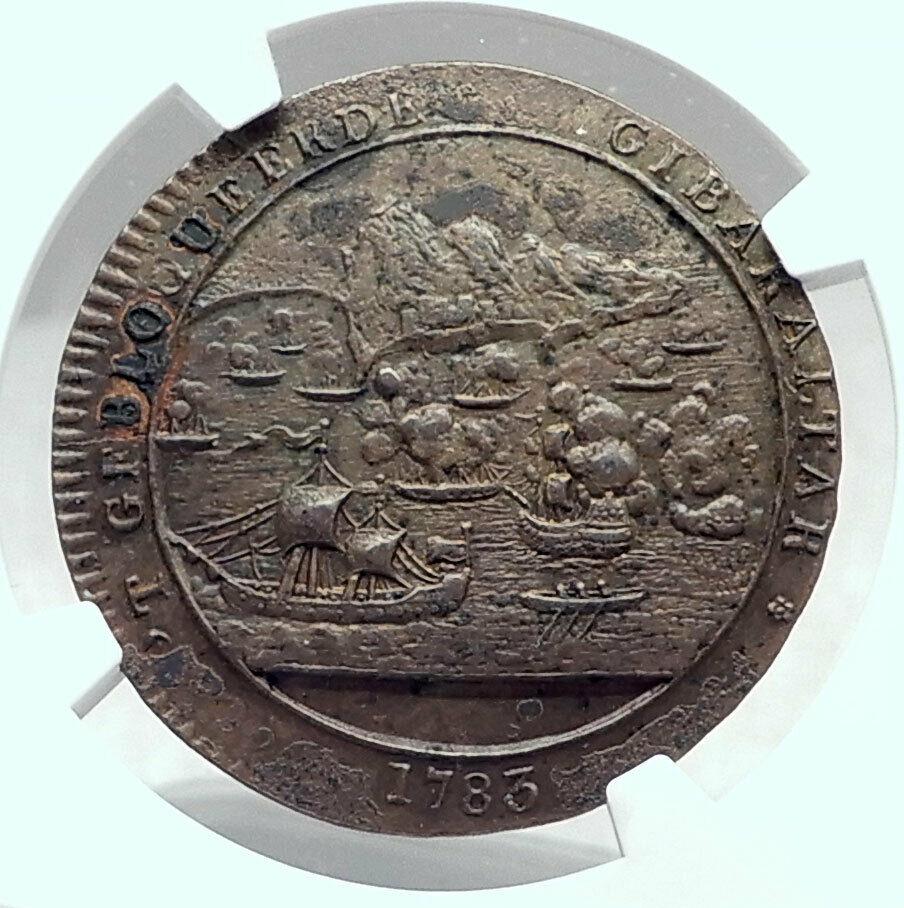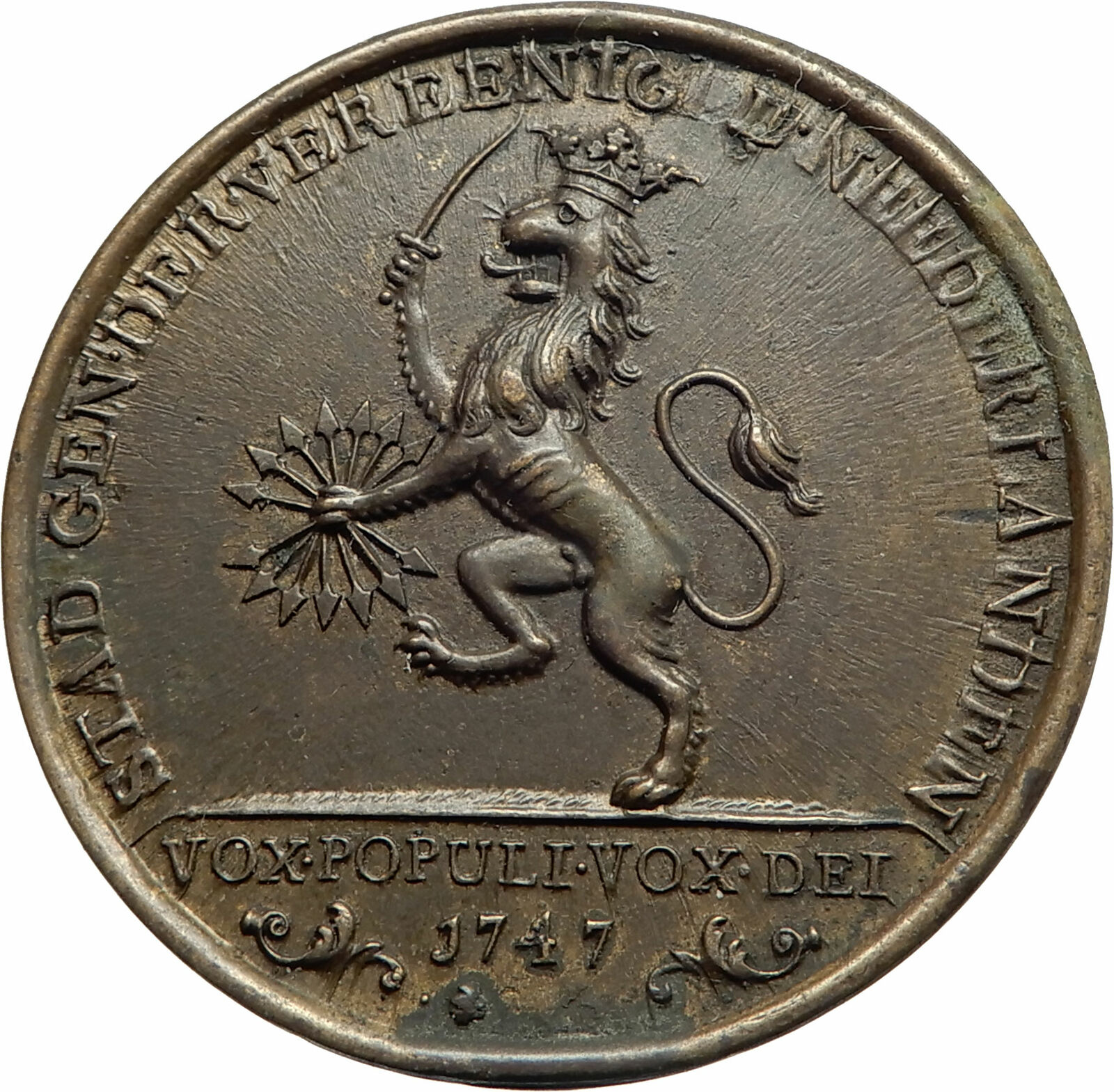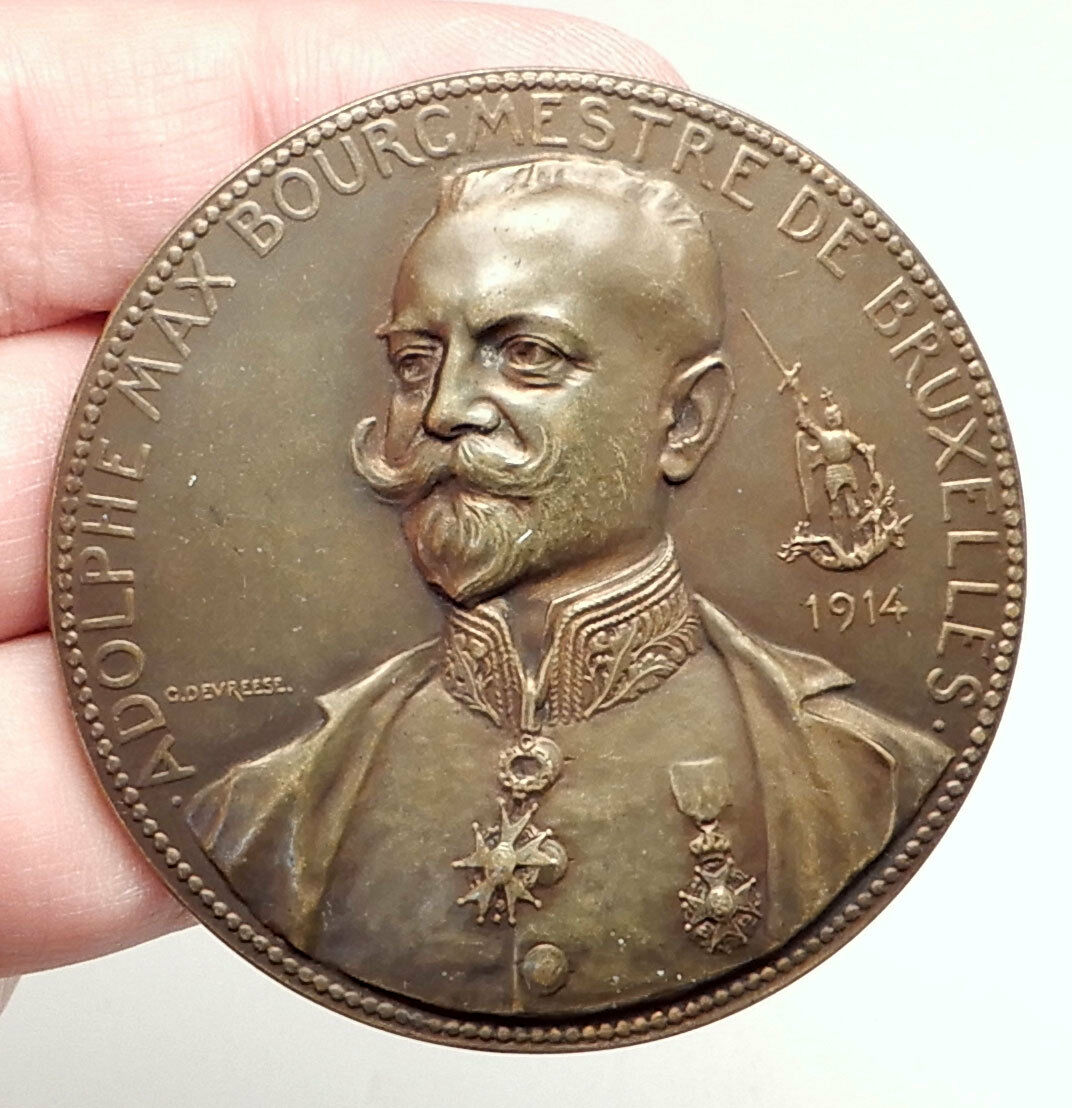|
Germany Empire
Wilhelm II – Emperor: 15 June 1888 – 9 November 1918
Catholic Convention – Pope Leo XIII
1888 Bronze Medal 27mm (8.42 grams)
WILHELM II DEUTSCHER KAISER, Wilhelm facing 1/2 left.
GENERALVERSAMMLUNG DER KATHOLIKEN SCHLESIENS BEUTHEN O/S. 17-19 JULI 1888, Oak below Pope facing left.
You are bidding on the exact item pictured, provided with a Certificate of Authenticity and Lifetime Guarantee of Authenticity.
 Pope Leo XIII (Italian: Leone XIII; born Vincenzo Gioacchino Raffaele Luigi Pecci; 2 March 1810 – 20 July 1903) was the head of the Catholic Church from 20 February 1878 to his death in 1903. He was the oldest pope (living till the age of 93), with the exception of Pope Benedict XVI as emeritus pope, and had the third-longest confirmed pontificate, behind those of Pius IX (his immediate predecessor) and John Paul II. Pope Leo XIII (Italian: Leone XIII; born Vincenzo Gioacchino Raffaele Luigi Pecci; 2 March 1810 – 20 July 1903) was the head of the Catholic Church from 20 February 1878 to his death in 1903. He was the oldest pope (living till the age of 93), with the exception of Pope Benedict XVI as emeritus pope, and had the third-longest confirmed pontificate, behind those of Pius IX (his immediate predecessor) and John Paul II.
He is well known for his intellectualism and his attempts to define the position of the Catholic Church with regard to modern thinking. In his famous 1891 encyclical Rerum novarum, Pope Leo outlined the rights of workers to a fair wage, safe working conditions, and the formation of trade unions, while affirming the rights of property and free enterprise, opposing both socialism and laissez-faire capitalism. He influenced Mariology of the Catholic Church and promoted both the rosary and the scapular.
Leo XIII issued a record of eleven papal encyclicals on the rosary, earning him the title as the “Rosary Pope“. In addition, he approved two new Marian scapulars and was the first pope to fully embrace the concept of Mary as Mediatrix. He was the first pope to have never held any control over the Papal States, after they had been dissolved by 1870. He was briefly buried in the grottos of Saint Peter’s Basilica before his remains were later transferred to the Basilica of Saint John Lateran.
 Wilhelm II or William II (German: Friedrich Wilhelm Viktor Albrecht von Preußen; Frederick William Victor Albert of Prussia; 27 January 1859 – 4 June 1941) was the last German Emperor (Kaiser) and King of Prussia, ruling the German Empire and the Kingdom of Prussia from 15 June 1888 to 9 November 1918. He was the eldest grandson of the British Queen Victoria and related to many monarchs and princes of Europe. Wilhelm II or William II (German: Friedrich Wilhelm Viktor Albrecht von Preußen; Frederick William Victor Albert of Prussia; 27 January 1859 – 4 June 1941) was the last German Emperor (Kaiser) and King of Prussia, ruling the German Empire and the Kingdom of Prussia from 15 June 1888 to 9 November 1918. He was the eldest grandson of the British Queen Victoria and related to many monarchs and princes of Europe.
Crowned in 1888, he dismissed the Chancellor, Otto von Bismarck, in 1890 and launched Germany on a bellicose “New Course” in foreign affairs that culminated in his support for Austria-Hungary in the crisis of July 1914 that led in a matter of days to the First World War. Bombastic and impetuous, he sometimes made tactless pronouncements on sensitive topics without consulting his ministers, culminating in a disastrous Daily Telegraph interview that cost him most of his power in 1908. His top generals, Paul von Hindenburg and Erich Ludendorff, dictated policy during the First World War with little regard for the civilian government. An ineffective war leader, he lost the support of the army, abdicated in November 1918, and fled to exile in the Netherlands.
 Augusta Victoria of Schleswig-Holstein (Auguste Viktoria Friederike Luise Feodora Jenny; 22 October 1858 – 11 April 1921) was the last German empress and queen of Prussia by marriage to Wilhelm II, German Emperor. Augusta Victoria of Schleswig-Holstein (Auguste Viktoria Friederike Luise Feodora Jenny; 22 October 1858 – 11 April 1921) was the last German empress and queen of Prussia by marriage to Wilhelm II, German Emperor.
Augusta was known as “Dona” within the family. She had a somewhat lukewarm relationship with her mother-in-law, Victoria, who had hoped that Dona would help to heal the rift between herself and Wilhelm; this was not to be the case. The Empress was also annoyed that the title of head of the Red Cross went to Dona, who had no nursing or charity experience or inclination (though in her memoirs, Princess Viktoria Luise paints a different picture, stating that her mother loved charity work). Augusta often took pleasure in snubbing her mother-in-law, usually small incidents, such as telling her that she would be wearing a different dress than the one Victoria recommended, that she would not be riding to get her figure back after childbirth as Wilhelm had no intention of stopping at one son, and informing her that Augusta’s daughter, Viktoria, was not named after her (though, again, in her memoirs, Viktoria Luise states that she was named after both her grandmother and her great-grandmother, Queen Victoria).
Augusta and her mother-in-law grew closer for a few years when Wilhelm became emperor, as Augusta was often lonely while he was away on military exercises and turned to her mother-in-law for the companionship of rank, although she never left her children alone with her lest they be influenced by her well-known liberalism. Nevertheless, the two were often seen riding in a carriage together. Augusta was at Victoria’s bedside when she died of breast cancer in 1901.
Augusta also had less than cordial relationships with some of Wilhelm’s sisters, particularly the recently married Crown Princess Sophie of Greece. In 1890, when Sophie announced her intention to convert to Greek Orthodoxy, Dona summoned her and told her that if she did so, not only would Wilhelm find it unacceptable as the head of the Evangelical State Church of Prussia’s older Provinces, but she would be barred from Germany and her soul would end up in Hell. Sophie replied that it was her business whether or not she did. Augusta became hysterical and gave birth prematurely to her son, Prince Joachim, as a result of which she was overprotective of him for the rest of his life, believing that he was delicate. Evidently, so did Wilhelm; he wrote to his mother that if the baby died, Sophie would have murdered it.
 Germany, officially the Federal Republic of Germany, officially the Federal Republic of  Germany is a federal parliamentary republic in western-central Europe. It includes 16 constituent states and covers an area of 357,021 square kilometres (137,847 sq mi) with a largely temperate seasonal climate. Its capital and largest city is Berlin. With 81 million inhabitants, Germany is the most populous member state in the European Union. After the United States, it is the second most popular migration destination in the world. Germany is a federal parliamentary republic in western-central Europe. It includes 16 constituent states and covers an area of 357,021 square kilometres (137,847 sq mi) with a largely temperate seasonal climate. Its capital and largest city is Berlin. With 81 million inhabitants, Germany is the most populous member state in the European Union. After the United States, it is the second most popular migration destination in the world.
Various Germanic tribes have occupied northern Germany since classical antiquity. A region named Germania was documented before 100 CE. During the Migration Period the Germanic tribes expanded southward. Beginning in the 10th century, German territories formed a central part of the Holy Roman Empire. During the 16th century, northern German regions became the centre of the Protestant Reformation.
The rise of Pan-Germanism inside the German Confederation resulted in the unification of most of the German states in 1871 into the Prussian-dominated German Empire. After World War I and the German Revolution of 1918-1919, the Empire was replaced by the parliamentary Weimar Republic. The establishment of the Third Reich in 1933 led to World War II and the Holocaust. After 1945, Germany split into two states, East Germany and West Germany. In 1990, the country was reunified.
 In the 21st century, Germany is a great power and has the world’s fourth-largest economy by nominal GDP, as well as the fifth-largest by PPP. As a global leader in several industrial and technological sectors, it is both the world’s third-largest exporter and importer of goods. Germany is a developed country with a very high standard of living sustained by a skilled and productive society. It upholds a social security and universal health care system, environmental protection and a tuition free university education. In the 21st century, Germany is a great power and has the world’s fourth-largest economy by nominal GDP, as well as the fifth-largest by PPP. As a global leader in several industrial and technological sectors, it is both the world’s third-largest exporter and importer of goods. Germany is a developed country with a very high standard of living sustained by a skilled and productive society. It upholds a social security and universal health care system, environmental protection and a tuition free university education.
Germany was a founding member of the European Union in 1993. It is part of the Schengen Area, and became a co-founder of the Eurozone in 1999. Germany is a member of the United Nations, NATO, the G8, the G20, and the OECD. The national military expenditure is the 9th highest in the world. Known for its rich cultural history, Germany has been continuously the home of influential artists, philosophers, musicians, sportsmen, entrepreneurs, scientists and inventors.
|




 Pope Leo XIII (Italian: Leone XIII; born Vincenzo Gioacchino Raffaele Luigi Pecci; 2 March 1810 – 20 July 1903) was the head of the Catholic Church from 20 February 1878 to his death in 1903. He was the oldest pope (living till the age of 93), with the exception of Pope Benedict XVI as emeritus pope, and had the third-longest confirmed pontificate, behind those of Pius IX (his immediate predecessor) and John Paul II.
Pope Leo XIII (Italian: Leone XIII; born Vincenzo Gioacchino Raffaele Luigi Pecci; 2 March 1810 – 20 July 1903) was the head of the Catholic Church from 20 February 1878 to his death in 1903. He was the oldest pope (living till the age of 93), with the exception of Pope Benedict XVI as emeritus pope, and had the third-longest confirmed pontificate, behind those of Pius IX (his immediate predecessor) and John Paul II. Wilhelm II or William II (German: Friedrich Wilhelm Viktor Albrecht von Preußen; Frederick William Victor Albert of Prussia; 27 January 1859 – 4 June 1941) was the last German Emperor (Kaiser) and King of Prussia, ruling the German Empire and the Kingdom of Prussia from 15 June 1888 to 9 November 1918. He was the eldest grandson of the British Queen Victoria and related to many monarchs and princes of Europe.
Wilhelm II or William II (German: Friedrich Wilhelm Viktor Albrecht von Preußen; Frederick William Victor Albert of Prussia; 27 January 1859 – 4 June 1941) was the last German Emperor (Kaiser) and King of Prussia, ruling the German Empire and the Kingdom of Prussia from 15 June 1888 to 9 November 1918. He was the eldest grandson of the British Queen Victoria and related to many monarchs and princes of Europe. Augusta Victoria of Schleswig-Holstein (Auguste Viktoria Friederike Luise Feodora Jenny; 22 October 1858 – 11 April 1921) was the last German empress and queen of Prussia by marriage to Wilhelm II, German Emperor.
Augusta Victoria of Schleswig-Holstein (Auguste Viktoria Friederike Luise Feodora Jenny; 22 October 1858 – 11 April 1921) was the last German empress and queen of Prussia by marriage to Wilhelm II, German Emperor.  Germany, officially the Federal Republic of
Germany, officially the Federal Republic of  Germany is a federal parliamentary republic in western-central Europe. It includes 16 constituent states and covers an area of 357,021 square kilometres (137,847 sq mi) with a largely temperate seasonal climate. Its capital and largest city is Berlin. With 81 million inhabitants, Germany is the most populous member state in the European Union. After the United States, it is the second most popular migration destination in the world.
Germany is a federal parliamentary republic in western-central Europe. It includes 16 constituent states and covers an area of 357,021 square kilometres (137,847 sq mi) with a largely temperate seasonal climate. Its capital and largest city is Berlin. With 81 million inhabitants, Germany is the most populous member state in the European Union. After the United States, it is the second most popular migration destination in the world. In the 21st century, Germany is a great power and has the world’s fourth-largest economy by nominal GDP, as well as the fifth-largest by PPP. As a global leader in several industrial and technological sectors, it is both the world’s third-largest exporter and importer of goods. Germany is a developed country with a very high standard of living sustained by a skilled and productive society. It upholds a social security and universal health care system, environmental protection and a tuition free university education.
In the 21st century, Germany is a great power and has the world’s fourth-largest economy by nominal GDP, as well as the fifth-largest by PPP. As a global leader in several industrial and technological sectors, it is both the world’s third-largest exporter and importer of goods. Germany is a developed country with a very high standard of living sustained by a skilled and productive society. It upholds a social security and universal health care system, environmental protection and a tuition free university education.




